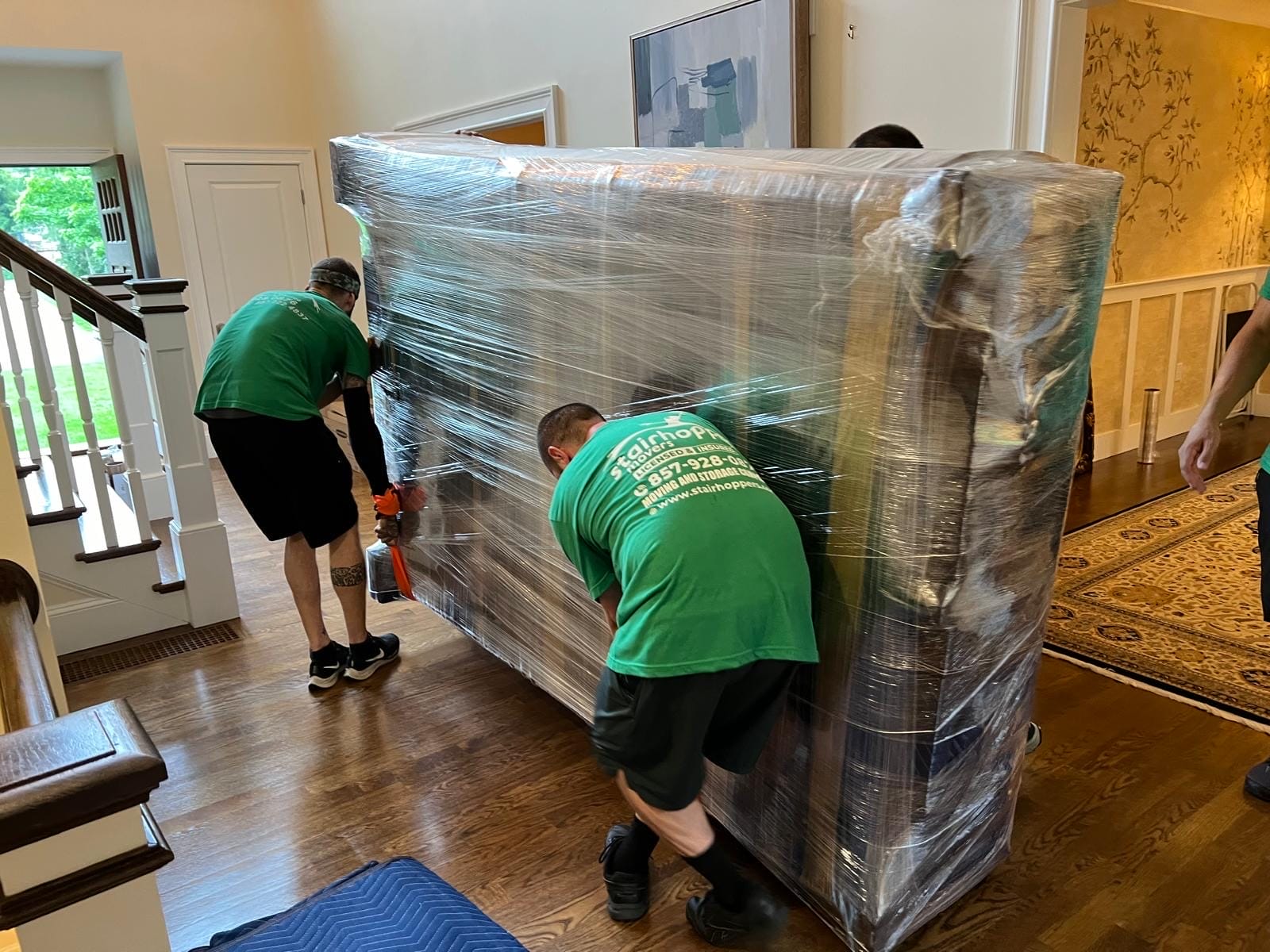Moving out of a studio or one-bedroom apartment might seem simple, but it comes with unique challenges. Limited space means you have less to pack but also less room to organize, stack, and store your items while you prepare. Every box, item, and square foot counts. That’s why small moves require just as much thought, if not more, than relocating a full-size home. The key to success is a combination of planning, organization, and time management. From choosing proper packing materials to deciding whether to hire Residential Movers, every step matters. Most small-space Boston movers overlook key details like access restrictions, elevator reservations, or moving day rules, which can delay the process unnecessarily.
A well-organized move minimizes stress and cuts down on the physical effort and financial strain that often come with relocation. It also helps ensure that nothing is lost or broken along the way. Whether you’re moving solo or with help, having a strategic approach can make a significant difference. In this article, you’ll find expert-backed, easy-to-follow advice tailored for individuals or couples transitioning from a studio or one-bedroom apartment. This guide provides advice to facilitate a more efficient and confident move, regardless of budget or timeline.
Build a Clear and Focused Moving Timeline
Every successful move starts with a structured plan. Without a timeline, tasks pile up, making the process overwhelming. Start by mapping out your move at least two to three weeks in advance. Allocate specific days for packing, cleaning, and handling utilities or service changes. Use a checklist and break tasks into manageable steps. For instance, spend one-day organizing paperwork, another packing kitchen items, and another disconnecting service. This approach reduces last-minute stress and helps you stay on track. If you’re considering hiring Residential Movers in Boston, reach out to companies early to book your preferred date. Movers often fill up quickly, especially during weekends and at the end of each month.
Budget time for unexpected delays such as traffic, weather, or elevator access restrictions. If you’re moving during peak hours or into a building with multiple units, allow time for waiting or sharing space. A timeline gives you clarity. It prevents bottlenecks and helps you identify areas where you might need help. Whether you’re moving nearby or across neighborhoods, a solid plan ensures everything gets done efficiently — on time and with fewer headaches.

Minimize What You Move Through Strategic Downsizing
A small move is the perfect opportunity to simplify your belongings. With limited space in a studio or one-bedroom, it’s best to take only what you truly need. Decluttering lightens your load and can reduce your moving costs significantly. Start by evaluating your possessions room by room. Ask yourself what you’ve used in the last six months. If it hasn’t been touched, it’s likely not worth moving. Be honest about duplicates and sentimental items that no longer serve a purpose.
Create clear categories: keep, donate, recycle, or discard. Apps and community groups make it easy to sell or give away items locally. You’ll find someone who can benefit from things you no longer use. Fewer boxes also mean less packing time and smoother transport. Most Boston Moving Companies price services based on volume and labor hours. Trimming unnecessary items not only saves money but also speeds up the entire process. Downsizing isn’t just about space — it’s about creating a more intentional lifestyle. Moving with less allows you to start fresh in your new place, with everything in its right place and nothing in your way.
Choose Packing Materials Wisely and Pack with Intention
Packing smart is essential for a smooth, small move. In limited spaces, clutter builds quickly, so staying organized from the start is important. Invest in high-quality packing supplies — sturdy boxes, packing tape, bubble wrap, and permanent markers. Use small boxes for heavier items like books and larger boxes for lighter things such as bedding or clothes. Wrap fragile items like glasses and plates using bubble wrap or soft clothing to save space and protect items. Fill gaps in boxes with socks or towels to prevent shifting during transport. Label all boxes clearly. Write the contents and destination room on the outside — for example, “Kitchen – Glassware.”
You can even color-code boxes using colored tape or stickers for easier sorting. Prepare a personal essentials box. This should contain the items you’ll need immediately after moving — chargers, a change of clothes, toiletries, and basic tools. Keep this with you instead of loading it into the truck. If you’re using Moving Services Boston, MA, ask whether they offer professional packing assistance. These services can save you hours and ensure that all your belongings are safely handled. Packing with purpose protects your items and makes unpacking far more manageable.
Prepare Your New Space Ahead of Time
Visiting your new apartment before moving day can help you avoid surprises. If the space is available, take measurements of doorways, hallways, and elevators to confirm that your furniture will fit. Planning this in advance reduces the risk of damage and wasted time. Clean the apartment before your belongings arrive. Even a light cleaning can make the move-in process more comfortable. Check for issues like leaky faucets, broken lights, or missing shelves. Let your landlord know right away if repairs are needed. Set up key services before arrival. This includes electricity, gas, water, and internet. You don’t want to spend your first night without lighting or Wi-Fi. Create a basic layout for where large furniture will go. Knowing where your bed, desk, or dining table will be placed allows movers to work faster and reduces lifting and rearranging later. If your building has moving guidelines, follow them. Reserve elevators or loading docks in advance and confirm parking rules for moving vehicles. Some Apartment Movers In Boston are familiar with local building procedures and can assist with this. Preparing the new space in advance lets you settle in faster and with fewer issues, giving you a smooth start in your new home.
Seek Help or Hire Experienced Movers
Although studio and one-bedroom moves are smaller in size, that doesn’t mean they’re easy. Tight hallways, stairwells, and parking restrictions can make even short-distance moves difficult. That’s where professional movers can be a smart investment. Experienced Residential Movers know how to handle compact moves efficiently. They have the tools, knowledge, and manpower to move items safely and quickly. They also understand how to navigate through buildings with no elevators, tight staircases, and narrow entryways. If you’re on a limited budget, consider partial services.
Many movers allow you to do the packing while they take care of loading, transport, and unloading. This saves money while still reducing your physical burden. When selecting movers, ask for written estimates and check customer reviews. Choose licensed and insured companies for extra peace of mind. A professional crew reduces the risk of accidents, broken items, and moving delays. Hiring movers doesn’t mean giving up control — it means gaining peace of mind. Your time, safety, and valuables are worth the investment, especially in a city environment where challenges can arise quickly.
Stay in Control on the Day of the Move
On a moving day, staying calm and organized will make the experience smoother. Begin early to give yourself time for any last-minute changes. Have your essentials box ready and your phone fully charged. Review your moving checklist one last time. Confirm that nothing is left behind and ensure your fragile items are secured. If you’ve hired movers, walk them through your space. Point out delicate furniture, boxes to be handled with care, or anything that’s staying behind. Dress in comfortable clothes and closed-toe shoes. Have snacks and water available to stay energized throughout the day.
Keep important documents, medications, keys, and chargers in a separate, easy-to-access bag. If parking is limited or traffic is expected, coordinate arrival times accordingly. Many Boston Moving Companies are familiar with city logistics and can suggest ideal time slots to avoid delays. Once everything is loaded, do one final walkthrough. Check closets, cabinets, and balconies. After arriving at your new space, start by setting up your bed and bathroom. This gives you a place to rest after the move. Adequate control and preparation contribute significantly to a smoother moving day.
Use Storage Options if Needed
If your new apartment is smaller or not fully ready, using short-term storage can be a practical solution. Temporary storage allows you to move in phases, preventing clutter from piling up in your new space. Many Boston Moving Companies offer secure, climate-controlled storage options. These services can hold extra furniture, seasonal items, or belongings you’re not ready to unpack. This is especially helpful when downsizing from a larger space or combining households. You can also consider self-storage units if you’re comfortable transporting items yourself.
Choose one close to your new apartment for easy access. Make sure to label and list everything in storage to stay organized. Storage is ideal if your lease dates don’t align or if you’re remodeling the new apartment. It also helps reduce pressure during the moving day, giving you time to make thoughtful decisions about item placement. Rather than cramming everything into one small space, storage gives you flexibility and peace of mind. It’s a smart way to ease into your new apartment without creating chaos.
Plan Your Transportation Efficiently
Transportation is a key piece of a successful small move. Choosing the right vehicle size and route can prevent multiple trips, wasted time, and unnecessary stress. Before moving day, take stock of everything you plan to transport and match it with an appropriately sized vehicle. If you’re renting a van, make sure it’s large enough to fit your bigger items like mattresses, desks, or bookshelves. For moves within the city, smaller trucks are often easier to maneuver and park, especially on narrow streets. Work with Residential Movers Boston who understand local traffic patterns and parking rules.
Experienced movers can help secure temporary parking permits or suggest time slots when the streets are less crowded. Pack your vehicle in an order that matches your priorities. Load heavier items first, followed by delicate or immediate-use boxes. Keep essentials near the front for easy access. Planning your transport down to the details can help reduce back-and-forth trips and lower moving costs. Whether you’re using a rental truck, personal vehicle, or professional movers, a well-thought-out transportation plan makes your move more efficient.
Check Apartment Rules and Building Access
Before moving, it’s essential to understand your new building’s rules. Many apartment buildings have strict policies for moving days. These can include designated hours, elevator reservations, loading dock access, and even insurance requirements for movers. Speak with your building manager ahead of time to clarify all move-in procedures. Find out if you need to book the service elevator, where to park the moving vehicle, and how to access the building. Failing to do this can result in delays or fines. Some buildings may also have restrictions on the size or type of items allowed through hallways and doorways.
Measure your furniture in advance to avoid surprises. If you’re working with Apartment Movers In Boston, they may already be familiar with the logistics of your building. Still, it’s best to communicate all the rules to them beforehand. These preparations ensure that your move stays on schedule and prevent conflicts with building staff or neighbors. Adhering to policies shows respect for your new community and helps you start your lease on the right foot.
Unpack Strategically and Settle In
Once you’ve moved into your new apartment, resist the urge to unpack everything at once. Instead, focus on setting up your most essential areas first. Start with your bed, kitchen basics, and bathroom necessities. Use your labeled boxes to guide the process. Unpacking by room — rather than randomly — helps you stay organized and avoid clutter. Make use of furniture with built-in storage like under-bed drawers or vertical shelves. Set a goal to unpack a certain number of boxes each day. This prevents burnout and allows you to thoughtfully arrange your items.
If you used short-term storage, schedule a date to bring those items in once your living space is set. Make small improvements as you go, such as hanging curtains, installing hooks, or organizing cabinets. These personal touches help transform your apartment from a blank slate into a comfortable home. Unpacking is the final step in your move — but it’s also the beginning of your new space. Taking time to do it right will help you feel settled, relaxed, and ready to enjoy your new environment.
Wrapping it up
Successfully navigating a move from a studio or one-bedroom apartment hinges on meticulous planning and proactive execution. While the volume of belongings may be less than a larger household, the nuances of smaller spaces and urban environments demand careful consideration of every step. From establishing a clear timeline and strategically decluttering to selecting appropriate packing materials and preparing your new space, each element contributes significantly to a streamlined process. Understanding building regulations, efficient transportation, and the potential benefits of short-term storage are also crucial for a smooth transition.
For those facing the unique challenges of moving within Boston’s compact living spaces and intricate building layouts, Stairhopper Movers offers a specialized solution. With a deep understanding of the city’s logistics, including navigating tight streets, securing necessary permits, and coordinating with building management, their experienced team provides invaluable support. Their attention to detail in packing, careful handling of belongings, and efficient transport can significantly reduce the stress and physical burden often associated with urban moves.




